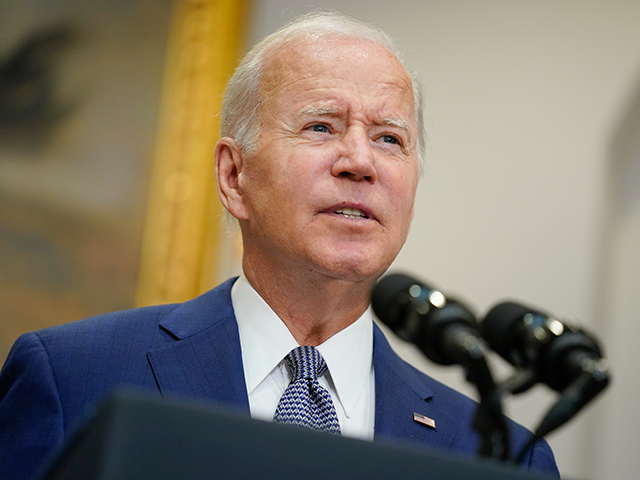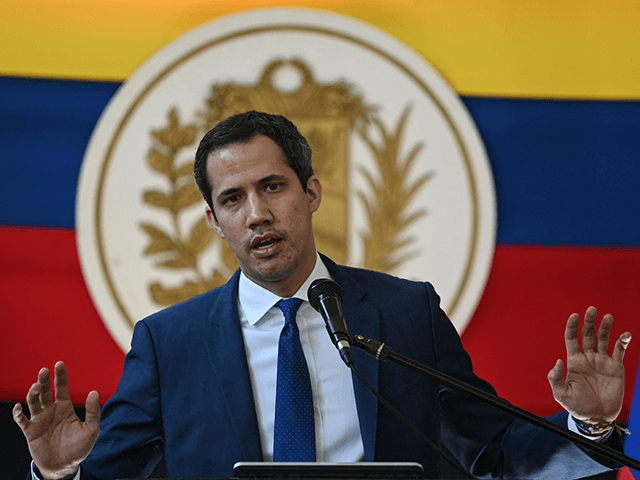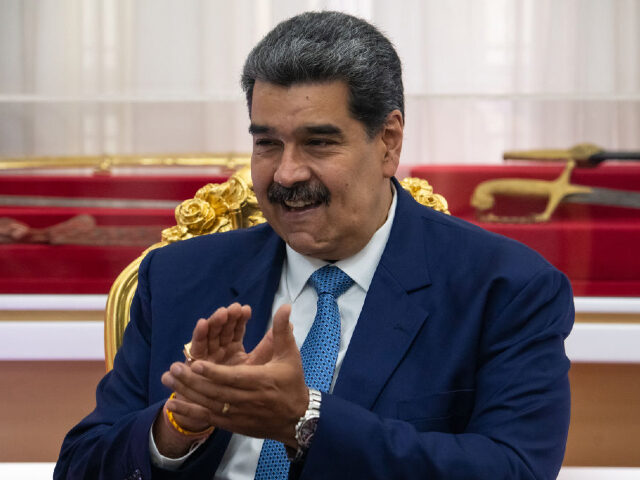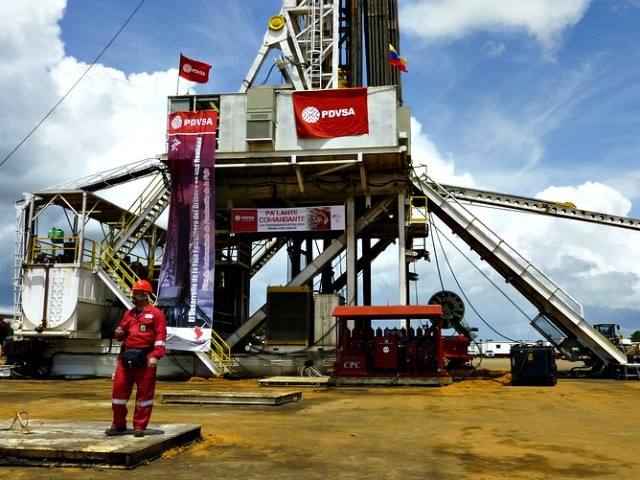CARACAS, Venezuela – The Biden administration is preparing to ease oil sanctions on the socialist regime of Venezuela that would allow California-based Chevron to resume oil production there, potentially opening a path for the return of Venezuelan oil exports into U.S. and European markets, according to a report published by the Wall Street Journal on Wednesday.
The report, in which the Wall Street Journal cites unnamed “U.S. officials” familiar with the matter, alleged that, in return for the significant sanctions relief, the Maduro regime would have to resume negotiations with the also socialist Venezuelan opposition to discuss terms and conditions needed to hold “free and fair” presidential elections in 2024.
The Biden administration has repeatedly insisted that the Maduro regime and Venezuela’s “opposition” — which is, in reality, its legitimate government — engage in negotiations. Both sides have attempted talks on multiple occasions, always leading to the same end: no fruitful results towards solving the country’s ongoing political crisis.
Ali Moshiri, a former Chevron executive, told the Wall Street Journal that the Biden administration’s easing of sanctions against the Maduro regime reflects political pressure derived by rising energy prices and a reduction in global supplies.

President Joe Biden speaks in the Roosevelt Room of the White House, Friday, July 8, 2022, in Washington. (AP Photo/Evan Vucci)
“It makes a lot of sense that the Biden administration relaxes some of the sanctions toward Venezuela, to allow multiple resources to help us lower energy prices,” Moshiri said. He estimated that Venezuela’s oil production could reach upwards of 1.5 million barrels per day in a two-year period if Chevron and other companies are allowed to operate in Venezuela.
In 2021, negotiations between both sides came to an abrupt end after representatives of the Maduro regime left the negotiating table in protest over the extradition of Alex Saab, a key ally of the Maduro regime currently detained in the United States facing trial over money laundering charges.

Venezuelan opposition leader Juan Guaido gestures while speaking during a press conference at the Morichal Park the day after regional and municipal elections in Caracas on November 22, 2021. (YURI CORTEZ/AFP via Getty Images)
The United States does not officially recognize Nicolás Maduro as Venezuela’s rightful president following his refusal to step down after holding sham presidential elections in 2018. Instead, it recognizes the administration of legal President Juan Guaidó as the country’s legitimate government, despite the latter’s inability to exercise any power whatsoever.
In spite of that, the Biden Administration has been in talks with the rogue socialist regime since March to discuss the easing of sanctions and potential oil deals between both countries. A group of Democrat members of Congress urged the Biden Administration this year to drop sanctions on the Maduro regime in May.
The Biden Administration has, in recent times, granted direct concessions to Maduro’s family, removing the former head of the state oil company Petróleos de Venezuela (PDVSA), Carlos Erik Malpica Flores, from the list of sanctioned individuals. Malpica Flores is one of Maduro’s nephews.
On October 1, the Biden Administration granted clemency to Efraín Antonio Campo Flores and Francisco Flores de Freitas, Maduro’s convicted drug-trafficking nephews, as part of a prisoner swap between both countries.
Due to the existing sanctions imposed upon Venezuela’s oil industry, Chevron maintains its operations in Venezuela thanks to a license that allows Chevron to carry out maintenance on its wells but does not allow it to drill, process or trade Venezuelan oil. The current license, renewed in May, is set to expire on December 1. In September, Chevron had asked the Biden administration for a new license to expand its activities at the four projects that the company runs in Venezuela, which winded down by 2020 to comply with U.S. sanctions.
According to Reuters, Guaidó has formally asked the United States for details regarding Chevron’s expanded license request, expressing concerns that the agreement between Chevron and Venezuela’s state oil company PDVSA pertaining to the license request would not be legal under Venezuelan law.
A report published by Reuters in August detailed how the socialist regime had been evading U.S. sanctions on its oil by shipping millions of barrels through one of China’s state-owned defense companies since 2020.
Venezuela’s oil production has seen some significant recovery after it had plummeted to historic lows due to the gross mismanagement of the socialist regime and the collapse of Bolivarian socialism.
In September, it was estimated that Venezuela had produced approximately 700,000 barrels of oil per day during August 2022, less than half of the regime’s promise of 2 million barrels per day.
The WSJ report states that the prospective agreement between the Biden administration and the Maduro regime is expected to be fleshed out later in October.
Christian K. Caruzo is a Venezuelan writer and documents life under socialism. You can follow him on Twitter here.


COMMENTS
Please let us know if you're having issues with commenting.